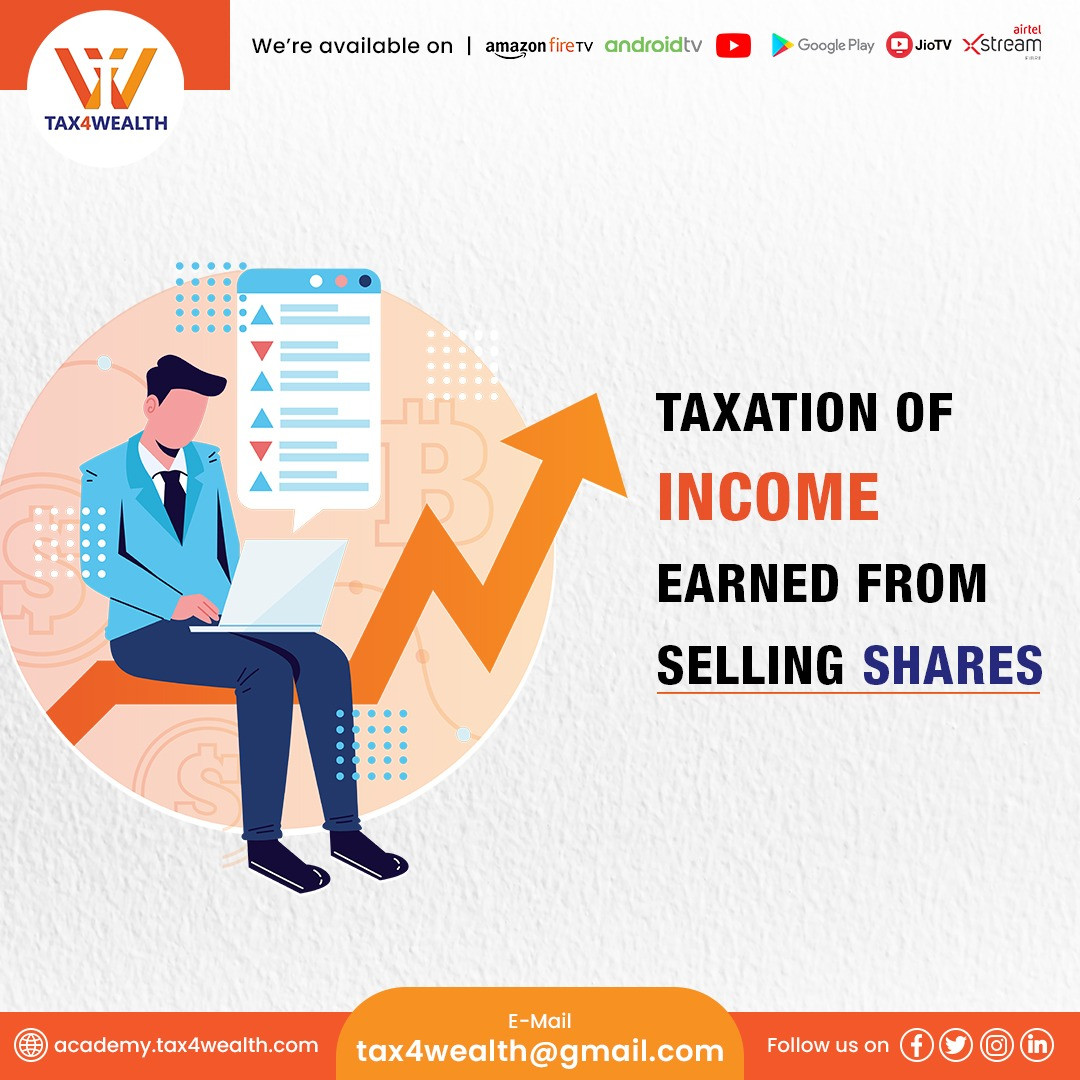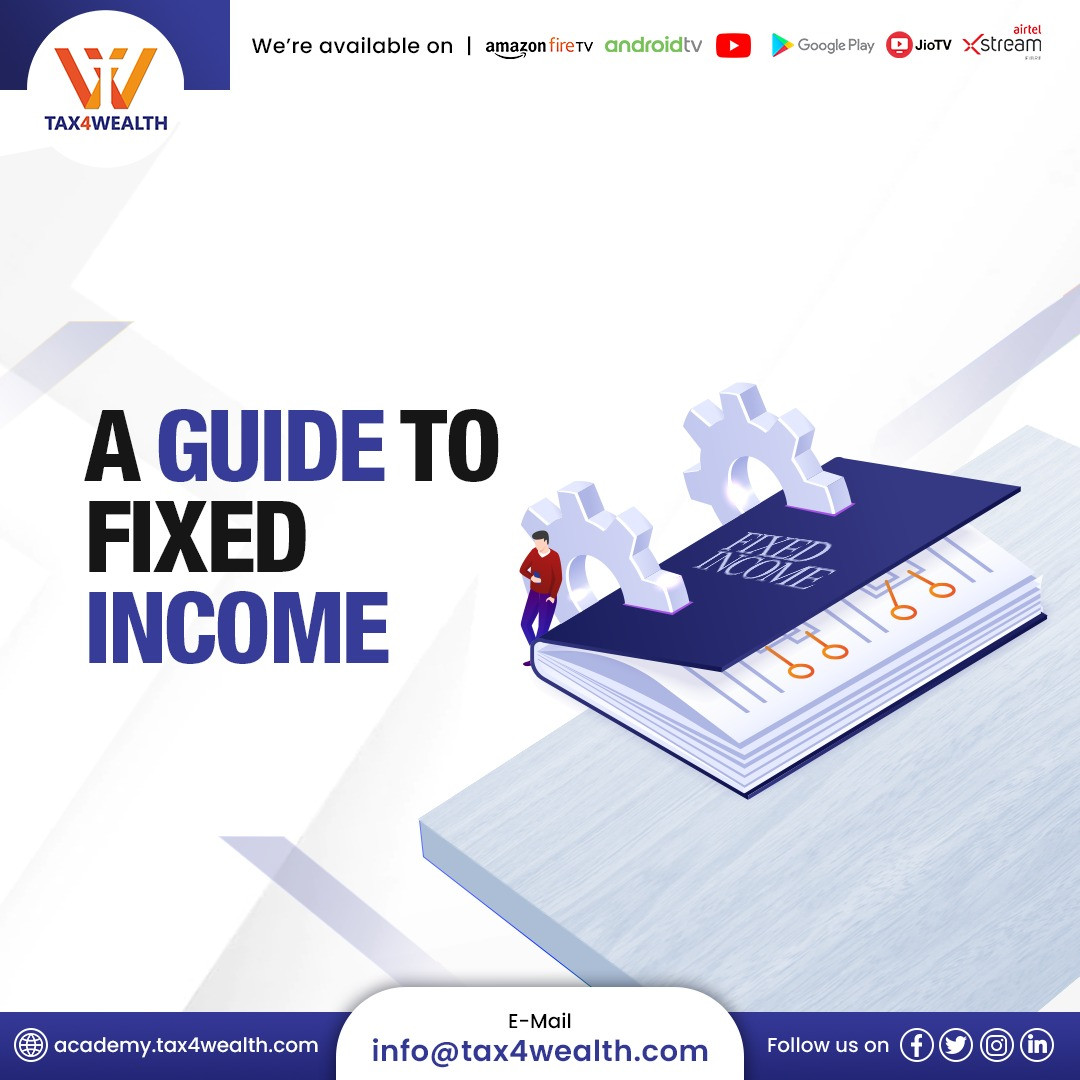
Taxation of Income Earned From Selling Shares
Introduction
It is well known that rental income, business income and income from salary is taxable. However, the question still arises about taxability of the income generated from the sale or purchase of shares. Many retired people and home makers spend their money in buying and selling of shares but on the other hand they are still unaware of the fact that how the income generated from such sale of shares are taxed.
It is to be noted that the income generated from sale of equity shares will fall under the income head "Capital Gains". Under the aforesaid head, the income is again classified into the following two heads;
(i) Long Term Capital Gains
(ii) Short Term Capital Gains
The aforesaid classification has been made as per the holding period of shares. The term "Holding Period" refers to the duration for which the investment is being held. In simple words, the starting date of the acquisition of shares and the date on which the transfer of sale was made.
However, it is also to be noted that the holding period of the securities and shares cannot be same and that they different according to various classes of capital assets. For the purpose of income tax, the holding period of equity mutual funds and equity shares is different from holding period of the debt mutual fund. Accordingly, the taxability of these schemes is also different.
Taxation of Income or Gain Generated from Sale of Equity Shares
Short-Term Capital Gains (STCG)
In case the equity shares are listed on the stock exchange and the same are sold within 12 months of buying, in that case the seller will make short term capital gain or may also incur short term capital loss. Thus, if the seller sells the shares at a higher price than the purchase price, then he will make a short term capital gain.
The calculation of short term capital Gain with the application of the below mentioned formula;
Calculation of short-term capital gain = Selling Price - Sales Expenses - Purchase price
Generally, Short-term capital gains are taxed at rate of 15% per annum. In case the tax slab of 10% or 20% or 30% is applicable. In that case, a special rate of tax i.e. 15 % will be applicable irrespective of the tax slab on the short term capital gain.
Long-Term Capital Gains (LTCG)
In case the equity shares are listed on the stock exchange and the same are sold after 12 months of buying, in that case the seller will make long term capital gain or may also incur long term capital loss. Thus, if the seller sells the shares at a higher price than the purchase price, then he will make a long term capital gain.
Prior to the introducing of the Budget 2018, the long term capital gains made on sale of equity oriented mutual fund units and equity shares was exempted from tax. In simple words, no tax was payable on the income generated from sale of long term equity capitals or investments.
The aforesaid exemption was withdrawn in the financial Budget 2018. Hence, from 2018 onwards, if a seller makes a long term capital gain exceeding Rs. 1 Lakh as a result of sale of equity shares or equity mutual fund units, then the income generated will be subject to tax of 10% per annum including the applicable cess. Apart from that, the indexation benefits are also not provided to the seller. The said provision came into force from 1 April 2018.
The said provisions was introduced prior to the beginning to the financial year i.e. from 1 February 2018, the gains incurred will be subject to tax. This was called as the ‘grandfathering rule’.
Illustration
Abhimanyu bought shares for Rs.200 on 30 July 2017 and sold them for Rs. 220 31 December 2018. The stock value was Rs.210 as of 31 January 2018. Out of the capital gains of Rs.20 (i.e. 220-200), Rs.10 (i.e. 220-210) is not subject to tax. The remaining Rs. 10 is taxable at the rate of 10% without indexation.
Loss incurred from Sale of Equity Shares
Short-term capital loss
Any short-term capital loss incurred from the sale of equity shares can be set-off against the income generated from short term capital gain or long term capital gain. However, there may be possibility that the loss may not be entirely set-off, thus it can be carried forward for at least 8 years and can be adjusted against any long term capital gain or short term capital gain made during the said 8 years.
It is to be noted that the taxpayer can carry forward the losses only if he or she has filed the income tax return as per the due date. Thus, although the total income generated in year which does not exceeds the minimum taxable income, then filing of income tax return is mandatory to carry forward the losses.
Long-Term Capital Loss
Until the introduction of the Finance Budget in 2018, the loss incurred from the sale of long term capital asset was termed as dead loss. As it could neither carry forwarded nor adjusted? This is due to the fact that long terms capital gains are listed equity shares are exempt. Likewise, the losses also cannot be carried forward or set-off.
After the introduction of Finance Budget 2018, some changes and amendments to the laws were made which states that capital gains made exceeding Rs. 1 Lakh will be taxed at 10% per annum. Accordingly, the Government of India notified that the losses made from such equity shares listed on the stock exchanges and mutual funds can be carried forwarded.
Any long-term capital loss incurred from the sale of equity shares can be set-off against the income generated from long term capital gain. However, there may be possibility that the loss may not be entirely set-off, thus it can be carried forward for at least 8 years and can be adjusted against any long term capital gain made during the said 8 years. The aforesaid provisions can be applicable only if the taxpayer has filed the income tax return within the due date.
Securities Transaction Tax (STT)
Securities Transaction Tax is applied on the equity shares when it is purchased or sold on a stock exchange. The said tax implication are applied only of the shares are listed on a stock exchange. It is to be noted that any purchase or sale on the stock exchange is taxable for Securities Transaction Tax.
The Treatment of Income from Sale of Shares as Business Income
Some of the taxpayers treat the income generated from sale of shares as business income, whereas some other treat as it as capital gains. It is a matter of debate once in a while. If someone engaged in share trading activity on a regular basis and generated income for such share trading on a daily basis, then income will be considered as business income. In that case, the taxpayer has file for ITR form 3 as the income will be taxed under the head "Income from Business and Profession".
How to Calculate the Income from Business and Capital Gains
In case of treatment of income generated from sale of shares as business income, a taxpayer can reduce the expenses made in generating such business income. In that case, the profits made will be added to the total income of the particular financial year and accordingly taxed as per charged tax slab.
In case of treatment of income generated from sale of shares as capital gain, the expenses made for such income are eligible for deduction. Apart from that, the long term capital gains from equity more than Rs. 1 Lakh are taxable annually.
New Clarification from Central Board of Direct Taxes (CBDT)
As per the clarification issued by the Central Board of Direct Taxes, Taxpayers are being offered a choice of how they want to treat the income generated from sale of shares. After choosing the option, the taxpayers must adopt the same process for the subsequent years too. However, the said process must be followed until and unless there is some major changes in the matter is made. It is to be noted the choices are provided only for listed shares and securities.
Apart from that, to reduce litigation aspects in such matters, CBDT has also issued some instructions as per CBDT circular no 6/2016 dated 29th February 2016) which are mentioned below;
In case the taxpayer opts to treat the listed shares as inventory, then the income will be treated as business income irrespective of the holding period of the such shares. The Assessing Officer will accept the provided stand as adopted by the taxpayer.
In case the taxpayer opts to treat the income as capital gain, the Assessing Officer will not raise a dispute only if the shares are listed and held exceeding 12 months. However, the said stand, once the taken by taxpayer in an assessment year will be applicable for the subsequent financial years as well.
Treatment of Income Generated from Sale of Unlisted Shares
As per CBDT circular Folio No.225/12/2016/ITA.1I dated the 2nd of May, 2016), In case of income generated from sale of unlisted shares having no formal market for trading will be taxed under the head of income "Capital Gain" irrespective of the holding period to avoid any sort of litigation aspect.
No comments yet, Be the first to comment.













